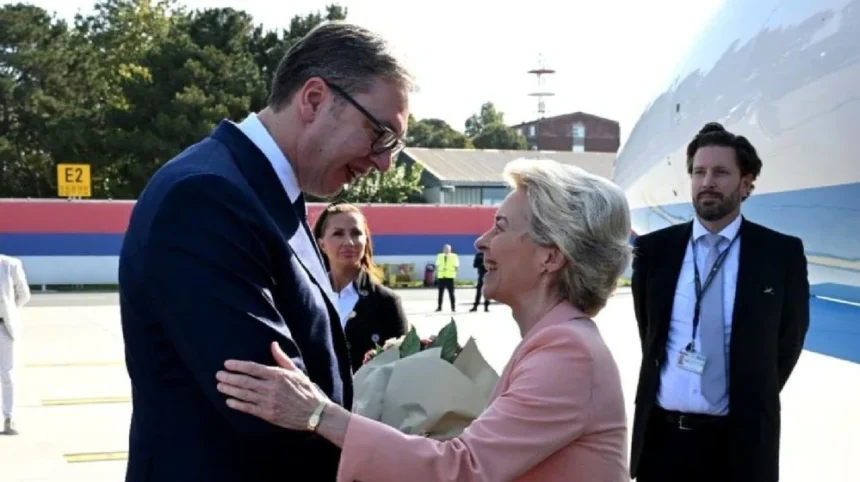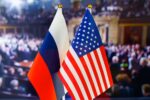After months of silence regarding anti-government protests in Serbia, European Commission President Ursula von der Leyen has finally criticized Belgrade for its failure to implement EU-mandated reforms.
Von der Leyen called on Serbia to take “decisive steps toward media freedom, fighting corruption, and electoral reform,” but the warning comes too late, writes Antoaneta Nikolova, director of the Balkan Free Media Initiative, in Politico.
For over a decade, Serbian President Aleksandar Vučić — a former propaganda minister — has systematically consolidated his party’s power, tightening control over national media. In October 2023, Serbia’s government adopted two controversial laws allowing state-owned companies to enter the media sector, undoing safeguards established after the Milošević era. Despite warnings from media organizations about the potential impact, the EU remained silent until mass protests and attacks on independent journalists forced a response.
The EU’s theoretical leverage through the accession process has weakened as candidate countries like Serbia, Turkey, and Georgia have launched attacks on press freedom, seemingly without consequence. Some EU members are also setting a poor example.
Hungary’s Prime Minister Viktor Orbán sued the EU over the newly adopted European Media Freedom Act (EMFA), claiming it infringes on national sovereignty. In Slovakia, Prime Minister Robert Fico dissolved the public broadcaster RTVS and created a new entity under closer government control.
Even major EU countries have backslid: a recent Civil Liberties Union for Europe report criticized Italy for unprecedented political interference in public broadcasting under Prime Minister Giorgia Meloni. Spanish Prime Minister Pedro Sánchez has also faced allegations of using media reforms to tighten control over major outlets.
These actions send a dangerous message to candidate countries like Serbia. The EU’s response to the selective application of the EMFA in places like Hungary and Slovakia will be closely watched.
In light of rising threats to European values, media freedom is increasingly seen as a security issue. Without a strong internal culture of media independence, the EU risks losing credibility both at home and abroad.
For many young Serbians, the EU remains a symbol of hope for democracy. The bloc must not let them down.







